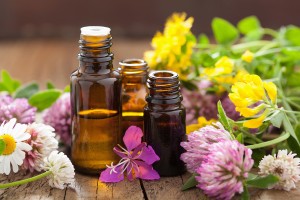Can Aromatherapy Really Help in Recovery from Opiate Addiction?
The National Institute on Drug Abuse defines addiction as “a chronic, relapsing brain disease that is characterized by compulsive drug seeking and use, despite harmful consequences.” When it comes to opiates, the drugs that are being sought and used include heroin, methadone, and codeine. Opioids include synthetic opiates like hydrocodone, oxycodone, and related drugs. An addiction to all of these drugs can be treated by using suboxone.
But, treatment doesn’t stop at suboxone and therapy. There are a number of other secondary techniques and practices that can help people achieve and maintain their recovery from addiction. One such practice is the use of aromatherapy.
Yes, aromatherapy can sound like just another hippie fad with no science behind it, but that isn’t true. There is a firm scientific foundation for aromatherapy and its role in the treatment of addiction and the maintenance of sobriety. For help locating other treatment resources and connecting with suboxone doctors, contact SuboxoneDrugRehabs.com at 888-646-0865 (Who Answers?) and speak with someone today.
What is Aromatherapy?

Aromatherapy can help to relieve negative feelings often experienced in addiction recovery.
Aromatherapy is, according to the National Cancer Institute, the “use of essential oils from plants to support and balance the mind, body, and spirit. It is used … as a form of supportive care that may improve quality of life and reduce stress and anxiety.” Commonly, cancer patients use aromatherapy, but it is not uncommon for others to take advantage of its benefits. The University of Minnesota reports, “Research studies on essential oils show positive effects for a variety of health concerns including infections, pain, anxiety, depression, tumors, premenstrual syndrome, nausea, and many others.”
Aromatherapy is simply the administration of the scents produced by essential oils (also known as volatile oils). Essential oils are made from the fragrant parts of many plants: under the surface of leaves, bark, or peel. If a plant is crushed and you smell a fragrance, you are inhaling essential oils.
Essences extracted from plants in natural ways become essential oils. The extraction may be distillation with steam and/or water, or mechanical pressing. Oils that are made with chemical processes are not true essential oils.
How Is Aromatherapy Administered?
Aromatherapy can take a few different forms. Examples listed by the National Cancer Institute include:
- Indirect inhalation: patient breathes in essential oils by using a room diffuser or placing drops nearby.
- Direct inhalation: patient breathes in essential oils by using an individual inhaler with drops floated on top of hot water.
- Aromatherapy massage: massaging essential oils, diluted in a carrier oil, into the skin.
- Applying essential oils to the skin by combining them with bath salts, lotions, or dressings.
Why Does It Work?
Your sense of smell, also known as olfaction, is part of the body’s limbic system, the one responsible for memory, emotions, and behavior. When you inhale a fragrance, messages are sent to parts of the parts of the brain that function as a part of the limbic system and chemicals that have an effect on your frame of mind are released. The limbic system is also part of the reward system that makes using drugs become compulsive. Opiates trigger a euphoria that floods the brain with feel good chemicals. This wires the brain to seek out drugs to feel that euphoria again. People in recovery can use aromatherapy as a natural way to trigger the same parts of their brains that were excited by drug use; this helps relieve some of the negative feelings and stressors associated with recovery.
There are some basic essential oils commonly chosen to treat addiction and sustain recovery. However, the types of oils used and the ways they are combined may vary, subject to the experience and skill of the aromatherapist.
Essential oils commonly used for addiction recovery include:
- Bergamot
- Lemon
- Black Pepper
- Orange
- Clove
- Grapefruit
- Lavender
- Peppermint
- Chamomile
- Rosemary
To speak with someone about other recovery techniques and practices, contact SuboxoneDrugRehabs.com at 888-646-0865 (Who Answers?) . Arming yourself with knowledge and resources will make the difference between a successful recovery and a strained or failed one.





